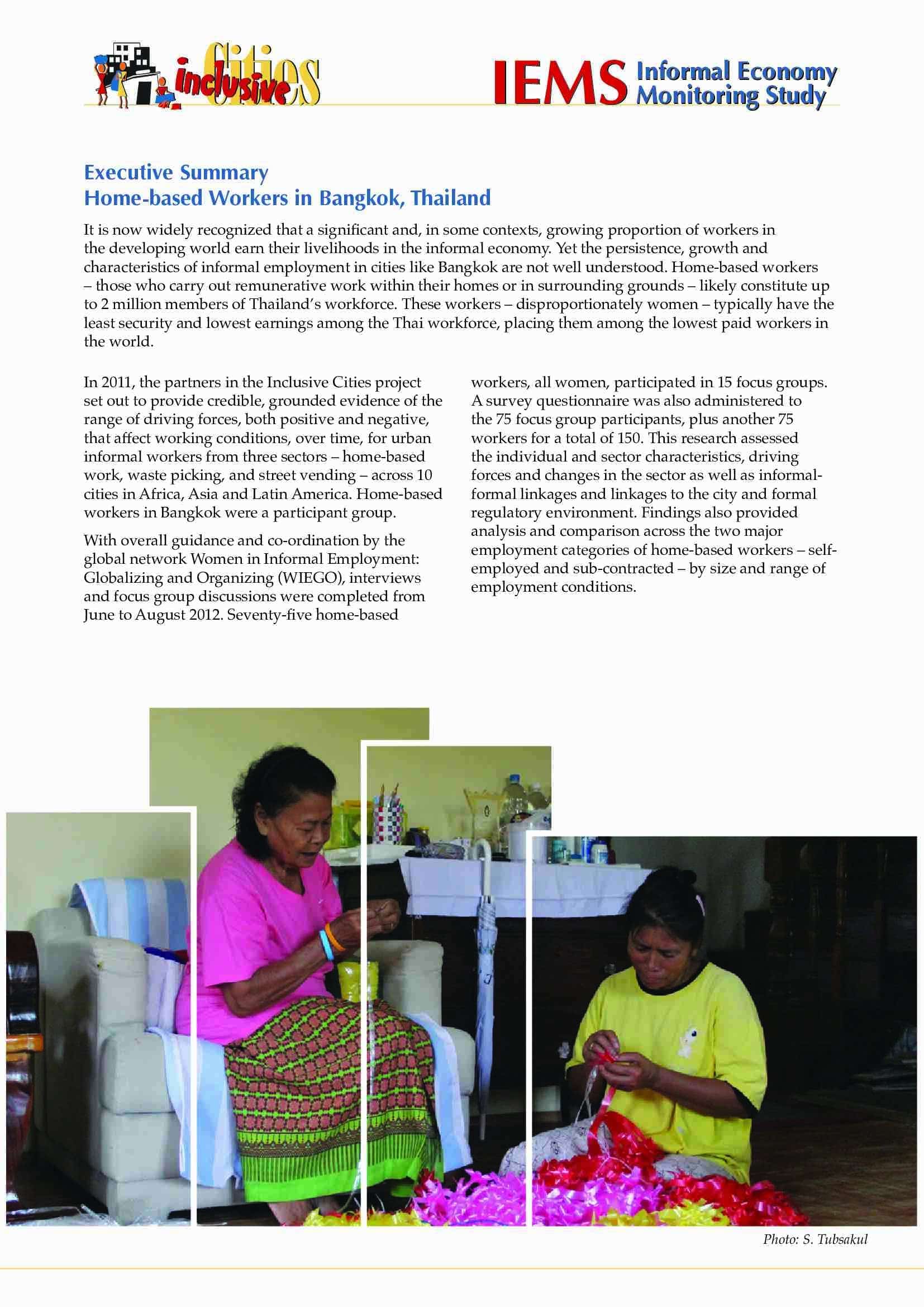Executive Summary – Informal Economy Monitoring Study: Home-based Workers in Bangkok, Thailand
It is now widely recognized that a significant and, in some contexts, growing proportion of workers in the developing world earn their livelihoods in the informal economy. Yet the persistence, growth and characteristics of informal employment in cities like Bangkok are not well understood. Home-based workers – those who carry out remunerative work within their homes or in surrounding grounds – likely constitute up to 2 million members of Thailand’s workforce.
This research - conducted alongside HomeNet Thailand - assessed the individual and sector characteristics of home-based workers in Bangkok, driving forces and changes in the sector as well as informal-formal linkages and linkages to the city and formal regulatory environment.
Read the Full Report | Policy Recommendations
The Informal Economy Monitoring Study (IEMS) is designed to provide in-depth understanding of how informal workers are affected by and respond to economic trends, urban policies and practices, value chain dynamics, and other economic and social forces. Learn more about the Informal Economy Monitoring Study.
View list of all: Research Reports

